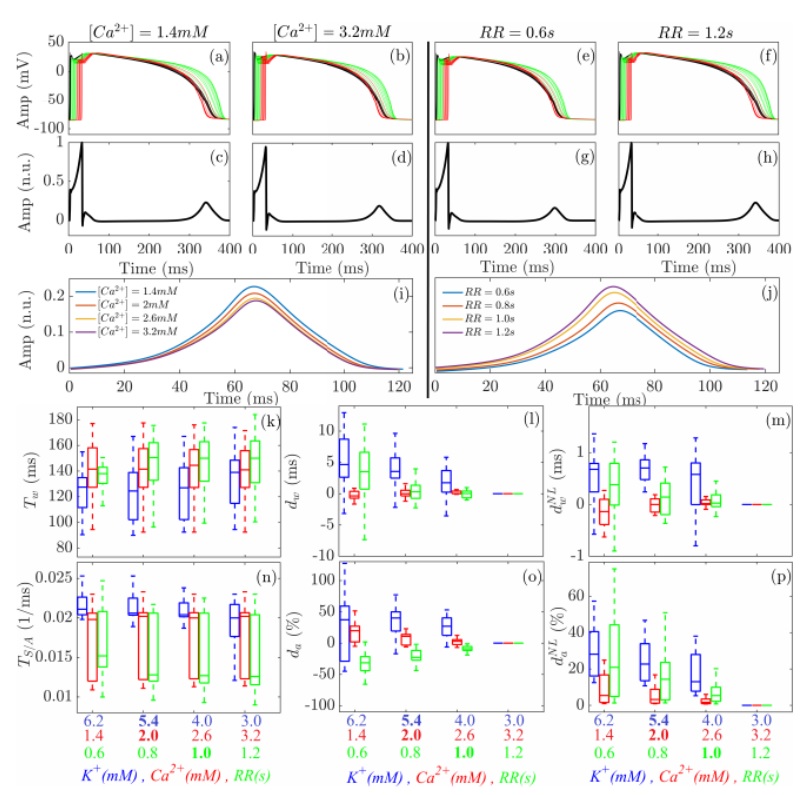-
News
Characterization of T Wave Amplitude, Duration and Morphology Changes during Hemodialysis: Relationship with Serum Electrolyte Levels and Heart Rate
25 Feb, 2021
Chronic kidney disease affects more than 10% of the world population. Changes in serum ion concentrations increase the risk for ventricular arrhythmias and sudden cardiac death, particularly in end stage renal disease (ESRD) patients. We characterized how T wave amplitude, duration and morphology descriptors change with variations in serum levels of potassium and calcium and in heart rate, both in ESRD patients and in simulated ventricular fibers.
Electrocardiogram (ECG) recordings from twenty ESRD patients undergoing hemodialysis (HD) and pseudo-ECGs (pECGs) calculated from twenty-two simulated ventricular fibers at varying transmural heterogeneity levels were processed to quantify T wave width (Tw), T wave slope-to-amplitude ratio (TS/A) and four indices of T wave morphological variability based on time warping (dw, dNLw, da and dNLa ). Serum potassium and calcium levels and heart rate were measured along HD. dNLa was the marker most strongly correlated with serum potassium, dw with calcium and da with heart rate, after correction for covariates. Median values of partial correlation coefficients were 0.75, −0.74 and −0.90, respectively.
For all analyzed T wave descriptors, high interpatient variability was observed in the pattern of such relationships. This variability, accentuated during the first HD time points, was reproduced in the simulations and shown to be influenced by differences in transmural heterogeneity. Changes in serum potassium and calcium levels and in heart rate strongly affect T wave descriptors, particularly those quantifying morphological variability. ECG markers have the potential to be used for monitoring serum ion concentrations in ESRD patients.
H. A. Bukhari, F. Palmieri, J. Ramírez, P. Laguna, J. E. Ruiz, D. Ferreira, M. Potse, C. Sánchez, E. Pueyo (2021)
DOI: 10.1109/TBME.2020.3043844

